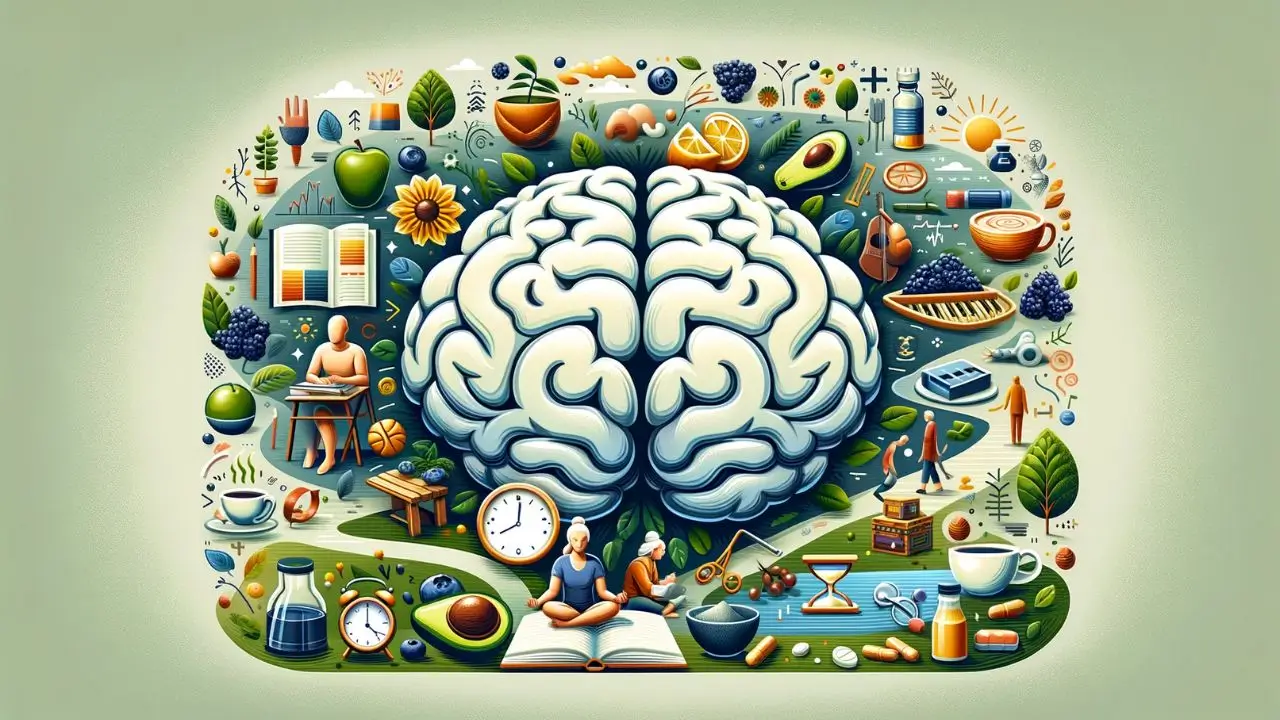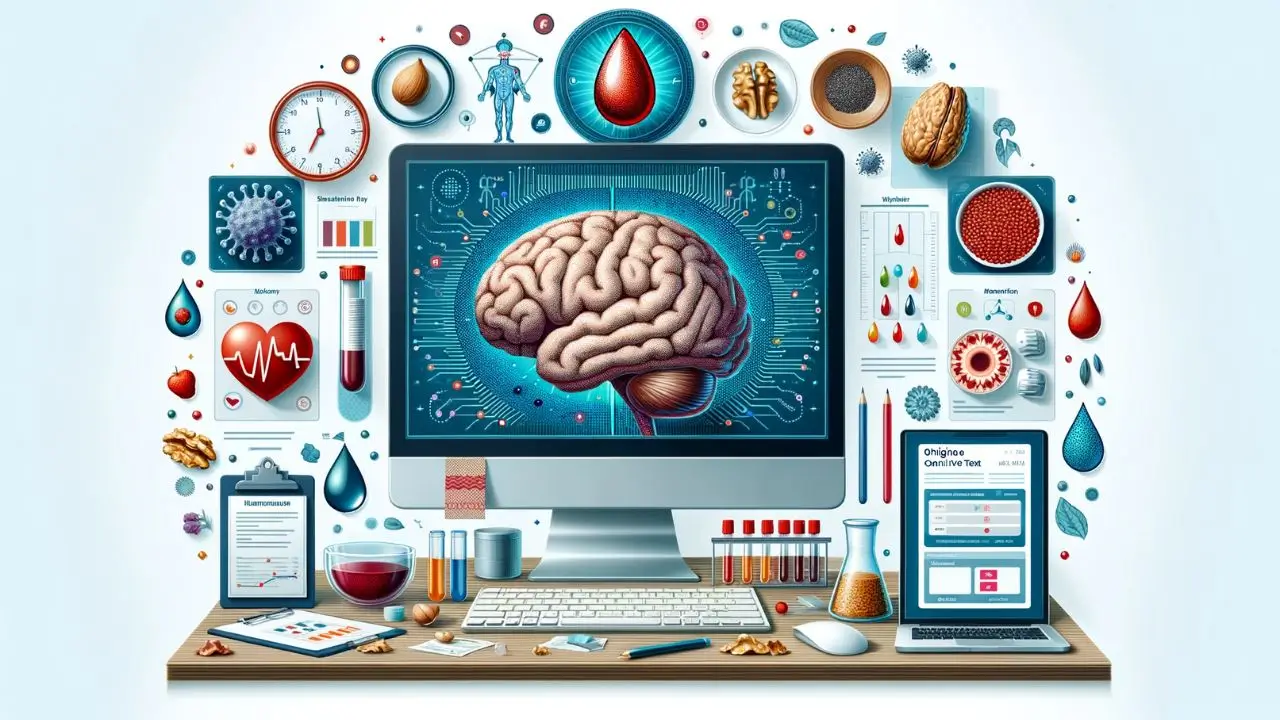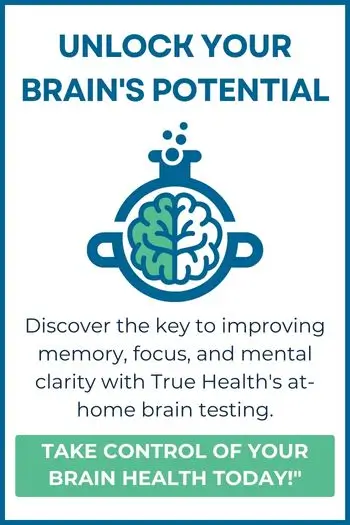Summary Bullets:
- Discover the natural ways to improve your memory, focus, and concentration without guesswork
- Learn how diet, exercise, sleep, brain games, and supplements can enhance your overall brain health
- Find out how to feel more alert, focused, and mentally sharp in your daily routine
Do you find yourself struggling to remember names, dates, or important information? Are you easily distracted and have trouble focusing on tasks? The good news is that there are natural ways to improve your memory, focus, and concentration without having to resort to guesswork. By incorporating these five key strategies into your daily routine, you can help enhance your overall brain health and cognitive function.
1. Nutritious Diet for Brain Health 🥦🍓
Improving memory, focus, and concentration is closely linked to a balanced and nutritious diet, and certain eating patterns, such as the keto and paleo diets, have been associated with supporting brain health. Both diets emphasize the consumption of whole, unprocessed foods rich in essential nutrients, including omega-3 fatty acids, antioxidants, and vitamins, which are crucial for maintaining cognitive function.
Omega-3 fatty acids, found in fatty fish, flaxseeds, and walnuts, are particularly important for brain health. These healthy fats have been shown to support memory and concentration, as well as help reduce the risk of cognitive decline.
Antioxidants, such as those found in colorful fruits and vegetables, play a vital role in protecting the brain from oxidative stress, which can contribute to cognitive aging and decline. Including a variety of berries, leafy greens, and other antioxidant-rich foods in the diet can help support brain function.
Vitamins, especially B vitamins and vitamin E, are essential for cognitive health. Foods like eggs, lean meats, nuts, and seeds are good sources of these vitamins and can help support memory and focus.
Consuming a balanced diet that includes a variety of fruits, vegetables, lean proteins, and healthy fats can help provide the essential nutrients needed for optimal brain function. In addition to the keto and paleo diets, other eating patterns that promote the consumption of nutrient-dense foods, such as the Mediterranean diet, have also been associated with supporting brain health and cognitive function.
2. Regular Exercise for Brain Health 🏃♂️💪
In addition to a healthy diet, regular exercise plays a crucial role in enhancing brain health and cognitive function. Engaging in different forms of physical activity, including high-intensity exercise, strength training, stretching, and core work, provides unique benefits for the brain.
High-intensity exercise, such as cardiovascular activities like running or cycling, can boost blood flow to the brain, providing it with the oxygen and nutrients it needs to function optimally. This increase in blood flow supports improved cognitive function, including memory and focus.
Strength training also contributes to brain health by promoting the growth of new brain cells and enhancing overall cognitive function. Additionally, strength training aids in reducing inflammation, which can have a positive impact on brain health and help protect against cognitive decline.
Incorporating activities that promote flexibility and balance, such as stretching and core work, can also benefit brain health. These activities help maintain overall physical wellness, which is closely linked to cognitive function.
Furthermore, integrating more movement into daily life, such as taking the stairs instead of the elevator or incorporating walking breaks throughout the day, is another effective way to support brain health. These forms of non-exercise movement contribute to overall physical activity levels, which correlate with improved cognitive function and brain health.
Engaging in a variety of physical activities not only benefits the body but also helps maintain and improve memory, focus, and concentration. It’s important to find activities that you enjoy and can easily incorporate into your daily routine to support optimal brain health. Remember, it’s crucial to consult with a healthcare professional before starting a new exercise program, especially if you have any pre-existing health conditions or concerns.
3. Quality Sleep for Cognitive Function 😴🌙
Adequate sleep is crucial for supporting cognitive function, memory consolidation, and overall brain health. Research has consistently shown that poor sleep can lead to a decline in cognitive performance, negatively impacting memory, focus, and concentration. Therefore, prioritizing sufficient rest each night is essential for optimal brain function.
It is recommended to aim for seven to nine hours of high-quality sleep each night to support cognitive processes. Quality sleep allows the brain to undergo essential functions, including memory consolidation, neural regeneration, and the removal of waste products that build up during waking hours. These processes are vital for maintaining cognitive abilities and supporting overall brain health.
Establishing a consistent sleep schedule, where you go to bed and wake up at the same times every day, promotes the body’s natural sleep-wake cycle, known as the circadian rhythm. This consistent schedule supports the brain’s ability to function at its best, enhances memory retention, and improves focus and concentration.
Creating a relaxing bedtime routine can also contribute to better sleep quality. Practices such as winding down with a book, taking a warm bath, or engaging in relaxation techniques can help prepare the mind and body for restful sleep, promoting cognitive function the following day.
In summation, prioritizing adequate and quality sleep is essential for improving memory, focus, and concentration naturally. By aiming for seven to nine hours of sleep each night, adhering to a consistent sleep schedule, and establishing a relaxing bedtime routine, individuals can effectively support their brain health and cognitive function. It’s important to understand that the impact of sleep on cognitive health is significant, and making sleep a priority can have long-lasting benefits for overall brain function and well-being.
4. Brain Games and Learning 🧩🎨
Engaging in brain games and activities is a valuable way to enhance memory, focus, and concentration. These activities, such as puzzles, crosswords, and brainteasers, serve as mental challenges that encourage the formation of new neural pathways, leading to improved cognitive function. Furthermore, learning new skills or hobbies can also stimulate brain health and help maintain sharp cognitive abilities naturally.
The brain benefits from activities that engage various cognitive functions, including logical reasoning, problem-solving, and memory retrieval. Engaging in puzzles and brainteasers, for instance, encourages mental agility and can lead to improved memory and attention span by stimulating the brain’s executive functions.
Similarly, learning new skills or hobbies, such as playing a musical instrument, painting, or acquiring a new language, can be particularly beneficial for brain health. These activities promote neuroplasticity, which is the brain’s ability to adapt and reorganize itself. By engaging in these activities, individuals can enhance their cognitive abilities, including memory, focus, and concentration, by promoting the formation of new neural connections.
Incorporating these brain games, puzzles, and new learning experiences into daily routines offers an enjoyable and proactive approach to naturally improving cognitive function. These activities provide mental stimulation and can contribute to long-term brain health, promoting memory retention, stronger focus, and improved concentration. It is important to incorporate a variety of mental challenges to continuously support brain health and maintain cognitive abilities over time.
5. Supplements for Cognitive Support 🌿💊
In addition to lifestyle habits, incorporating certain supplements into your daily routine can support memory, focus, and concentration. Omega-3 fatty acids, commonly found in fish oil, have been associated with improved brain function and may help protect against cognitive decline. These essential fatty acids play a crucial role in maintaining the structure and function of the brain, supporting cognitive abilities.
Similarly, vitamin D, known as the “sunshine vitamin,” is essential for overall health, including brain function. Research has suggested that adequate levels of vitamin D may promote cognitive performance and support brain health.
Vitamin B12 is also vital for brain function, as it plays a key role in the production of neurotransmitters that are essential for memory and concentration. Inadequate levels of vitamin B12 have been associated with cognitive impairment, making it important to ensure sufficient intake of this valuable nutrient.
Furthermore, magnesium, an essential mineral, is involved in numerous brain functions, including neurotransmitter production and supporting neural pathways. Adequate magnesium levels are essential for maintaining optimal cognitive function.
It’s important to approach supplement use with caution and seek guidance from a healthcare professional before adding any new supplements to your regimen. Consulting with a qualified healthcare provider can help ensure the safety and appropriateness of supplements for your individual needs.
While supplements can play a supportive role in improving memory, focus, and concentration, it’s essential to remember that they should complement a well-rounded approach to brain health, which includes a balanced diet, regular physical activity, mental stimulation, and adequate sleep. Combining these lifestyle practices with the appropriate use of supplements can effectively support and enhance cognitive function naturally.
In conclusion, improving memory, focus, and concentration naturally is possible through lifestyle changes and certain strategies. By prioritizing a healthy diet, regular exercise, quality sleep, engaging in brain games, and considering the use of supplements, you can support your brain health and enhance your cognitive abilities. Implementing these practices into your daily routine can help you feel more alert, focused, and mentally sharp.
Don’t let brain fog and poor memory hold you back. Take the first step towards better memory, focus, and concentration by exploring True Health Brain Testing at home. Get started now: https://chlabs.link/th-braintest











